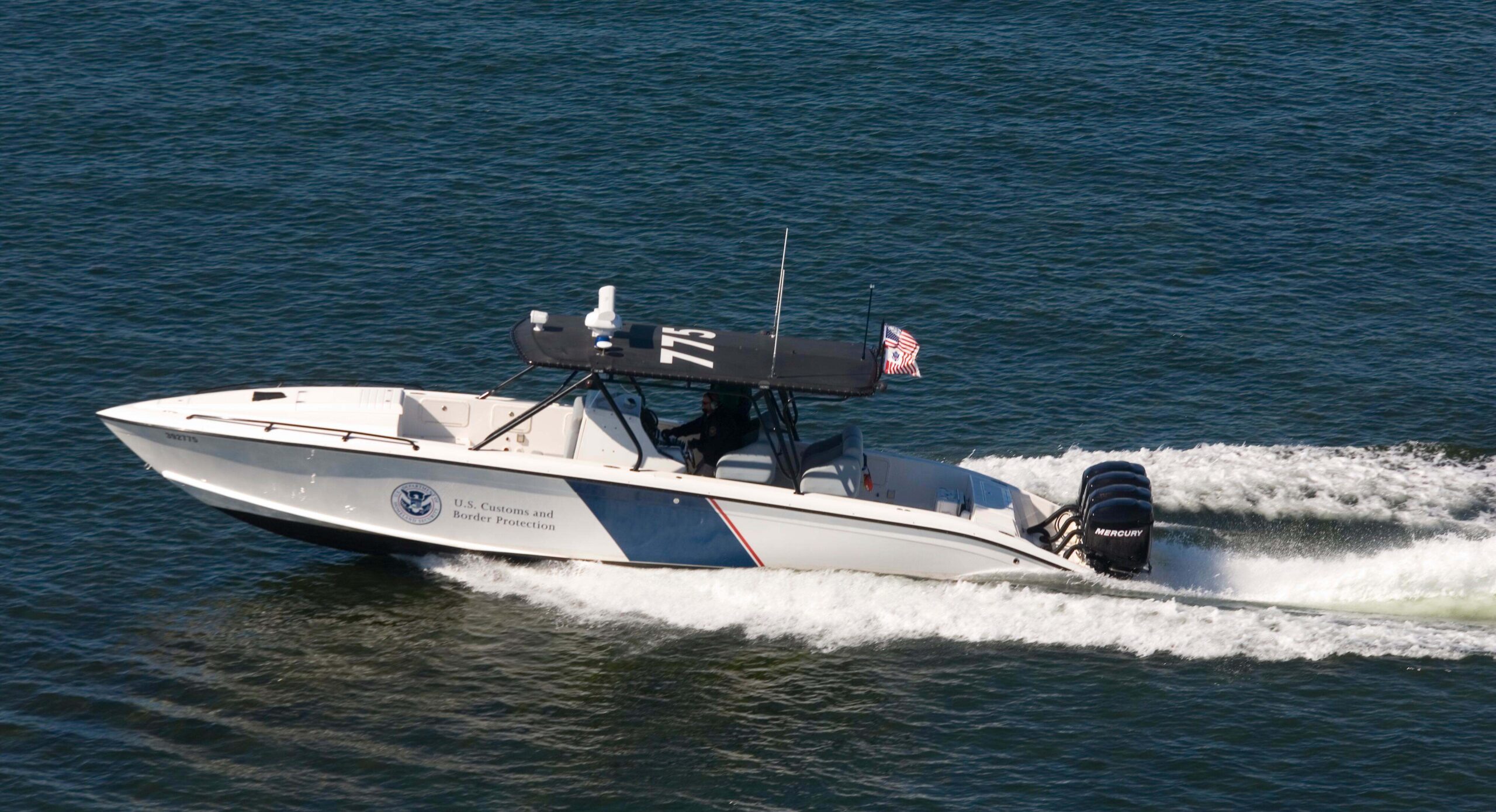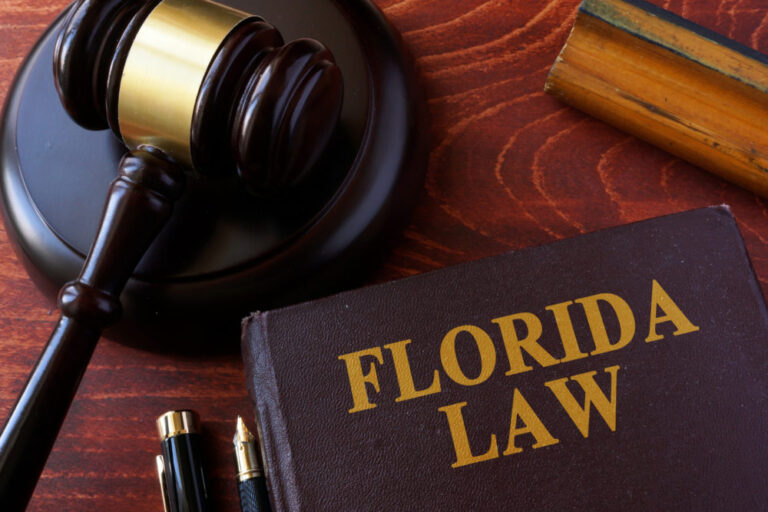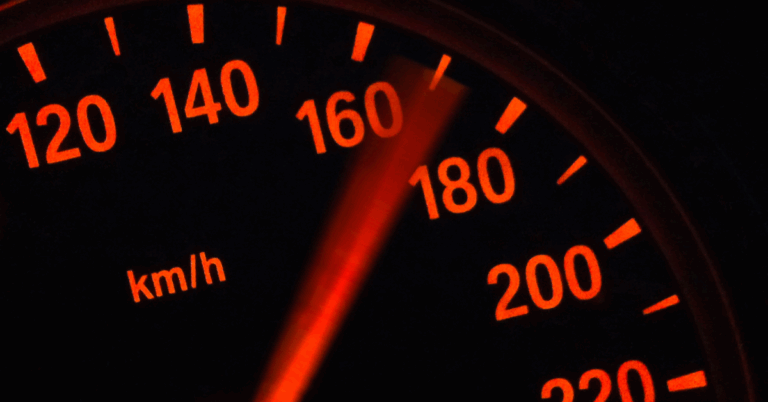Florida is home to over 1 million registered vessels according to a 2022 FWC announcement. This means the Sunshine State is also home to some of the heaviest law enforcement on the water. In this post we’ll go over some of the different law enforcement agencies you’ll find at sea and some of the common strategies they use to attempt to make waterways safe.
What law enforcement agencies are on the water?
First and foremost, you’ll find local police departments/sheriffs out in their own marine units. For example, in Miami you’ll see smaller local departments such as North Bay Village along with larger agencies like Miami PD. In addition, you’ll find the US Coast Guard in their orange boats patrolling recreational waterways with Federal jurisdiction.
Also in Florida, we also have the Fish and Wildlife Commission which also has a very strong presence on the water. While their main purpose is to enforce laws that protect wildlife and fish stocks, they are also known to enforce other laws such as wake zones and safety violations for the State.
The FWC Division of Law Enforcement’s 1,072 members, including 878 sworn personnel, operate in six regions throughout the state. FWC officers are responsible for uniformed patrol and investigative law enforcement services on more than 8,400 miles of coastline, 13,200 square miles of offshore waters, and more than 34 million acres of land encompassing a variety of habitats including private lands, wildlife management areas, state parks and forests.
Finally, in Florida it’s hard not to notice the presence of another agency, US Customs and Border Patrol. For the past 4 decades, Florida has been a major drug importation hotspot bringing the Feds and their really fast boats to our waters. They’re mostly out looking for narcotics and human smuggling operations. It would be much more uncommon for every day boaters to have a run-in with this agency.
How do traffic stops on the water differ from land?

The biggest difference between traffic stops on land and at sea is that law enforcement most of the time does not need probable cause to stop a boat. For the most part, law enforcement is allowed to stop a vessel for searches and safety checks anytime UNLESS there’s a recent safety inspection decal displayed prominently on the boat. In these cases, a local agency must have probable cause to stop. However, the US Coast Guard does not need probable cause and can stop boats at their discretion regardless if the boat has an inspection decal.
Long story short. It’s way easier for law enforcement to legally stop a boat than a car.
Registration and Safety Checks
Just like on land, law enforcement on the water starts with registration and equipment requirements. While you do not need a special license to operate a boat, the vessel must comply with safety checks.
First, all motored water vessels must be registered through your local Tax Collector’s Office. All vessels must be registered and numbered within 30 days of purchase.
Registration requirements include:
- Displayed letters separated from numbers by a hyphen or space equal to the letters
- Letters & numbers must be displayed in bold block letters at least 3” high in a color contrasting the hull
- Certificate of Registration on board and available for inspection when vessel is operated
- Vessel registration decal must be renewed annually and displayed within 6” of registration number on the port side
The state of Florida requires safety equipment by law according to the size/class of the vessel. Law Enforcement agencies on the water spend a lot of time stopping boats doing these types of checks. While doing these stops they may also be looking for evidence of drugs, alcohol or other illegal activities. Here are the links that list all of the required equipment by law:
- Minimum Required Safety Equipment for Class A Recreational Vessels: (less than 16 ft / less than 4.9m) or Canoes and Kayaks
- Minimum Required Safety Equipment for Class 1 Recreational Vessels: 16 to less than 26 ft/ 4.9 to less than 7.9m)
- Minimum Required Safety Equipment for Class 2 Recreational Vessels: 26 to less than 40 ft/ 7.9 to less than 12.2m)
- Minimum Required Safety Equipment for Class 3 Recreational Vessels: 40 to less than 65 ft/ 12.2 to less than 19.8m)
It’s required that all recreational vessels carry lifejackets, known as personal floatation devices (PFDs). All PFDs must be U.S. Coast Guard approved and in good, serviceable condition.
Details of the law include:
- At least one properly-sized PFD per person on board boat
- Vessels 16 feet or longer must include one “throwable” Type IV PFD
- Children under six years old must wear PFD at all times
- All Jet Ski Operators and riders must wear PFDs
In addition to the standard safety equipment like flares and lights, the state also requires an engine “kill switch” on vessels under 26 feet since 2021.
A possible way to avoid getting stopped is to schedule an inspection with a Coast Guard Auxiliary that will come to your vessel to do an inspection. You can avoid any fines this way and get a decal which could prevent future stops.
Wake Zones/Speeding
In essence, a no-wake zone on the water is comparable to a reduced speed limit on the road. These zones are crucial for maintaining safety during boating, preserving marine life, and reducing the risk of boat damage.
A ‘no wake’ indication requires you to reduce your speed to an idle level – that is, no faster than necessary to keep your boat on course without producing a wake. Certain areas may also have signs indicating a slow speed or minimal wake. In these zones, your boat should be off plane and settled in the water, generating only a negligible wake. Speed limit signs are self-explanatory.
Typically, these zones are intended to prevent constant waves from eroding the banks and to protect docked boats from excessive rocking and potential damage from hitting the docks. Reduced speeds may ensure safer navigation in specified waterways.
Moreover, absolute no-go areas exist. These are often areas frequented by manatees for feeding and mating, or areas allocated for human swimmers.
Dinghy parking
Another common law enforcement activity on the water? Parking enforcement. Thousands of people live on vessels anchored in the bays and inland waterways of Florida and occasionally those people need to come to shore. Often they’ll use a smaller boat or dinghy to come to land and many tie them off on bridges or other structures not meant for parking. As we come to understand it, maritime officers will typically issue a warning sticker on the dinghy and will issue a fine if they see another violation in the next 30 days.
Vessels at Risk/Derelict Vessels
Marine units have begun to focus more on identifying and issuing citations to “at risk vessels” in recent years as more and more people have started to populate inland waterways. The following comes straight from FWC without any edits:
Vessels at risk of becoming derelict are a concern because they can pose threats to public safety, cause property damage, endanger marine life, and block navigable waterways. A vessel is at risk of becoming derelict if any of the following conditions exist:
- The vessel is taking on or has taken on water without an effective means to dewater.
- Spaces on the vessel that are designed to be enclosed are incapable of being sealed off or remain open to the elements for extended periods of time.
- The vessel has broken loose or is in danger of breaking loose from its anchor.
- The vessel is listing due to water intrusion.
- The vessel does not have an effective means of propulsion for safe navigation within 72 hours after the vessel owner or operator receives telephonic or written notice, which may be provided by facsimile, electronic mail, or other electronic means, stating such from an officer, and the vessel owner or operator is unable to provide a receipt, proof of purchase, or other documentation of having ordered necessary parts for vessel repair.
- The vessel is tied to an unlawful or unpermitted structure or mooring.
NOTE: This section does not apply to a vessel that is moored to a private dock or wet slip with the consent of the owner for the purpose of receiving repairs.
Law enforcement officers work to encourage at-risk vessel owners to bring their vessel into compliance before it becomes derelict through periodic inspections and at-risk citations and warnings.
Derelict Vessels Become A Bigger Problem
After a storm, it’s not uncommon to see sunken, unattended vessels all over Florida. These boats often become navigation and environmental hazards. They’re costly to remove and difficult to find the owners that are responsible. This is why the state has begun a more proactive approach with “at risk” vessels.
A derelict vessel is defined as one that is:
- Wrecked, junked, or in substantially dismantled condition upon any waters of this state.
- A “wrecked” vessel is one that is sunken or sinking; aground without the ability to extricate itself absent mechanical assistance; or remaining after a marine casualty, including, but not limited to, a boating accident, extreme weather, or a fire.
- A “junked” vessel is one that has been substantially stripped of vessel components, if vessel components have substantially degraded or been destroyed, or if the vessel has been discarded by the owner or operator.
- A vessel is “substantially dismantled” if at least two of the three following vessel systems or components are missing, compromised, incomplete, inoperable, or broken:
- The steering system;
- The propulsion system; or
- The exterior hull integrity
NOTE: Attaching an outboard motor to a vessel that is junked or substantially dismantled will not cause the vessel to no longer be junked or substantially dismantled if such motor is not an effective means of propulsion as required by 327.4107(2)(e), F.S. and associated rules.
- Located at any port in Florida without the consent of the agency having jurisdiction thereof.
- Docked or grounded at or beached upon the property of another without the consent of the property owner.
Learn more about derelict vessel removal.
See this interactive map showing derelict vessels throughout Florida
Florida Fish & Wildlife Enforcement Has Different Priorities
If you are out fishing or lobstering you could have an encounter with FWC whose job it is to look after all of the state’s wildlife and fish stocks. Observedly, these laws are in place to safeguard the state’s fish population and to provide a safe and pleasant fishing experience for everyone. Fishing without a license is a punishable act with substantial fines. In addition to enforcing marine laws, they are also out looking for the following:
Fishing Licenses/Permits
If you’re planning on fishing in Florida, a fishing license is required. Such licenses can be procured from various sources such as the Florida Fish and Wildlife Conservation Commission (FWC) website, county tax collector’s offices, and tackle shops that offer them. It’s important to note that both paid and free licenses from the FWC website carry convenience fees. Most chartered boats possess a license covering their guests, but individual anglers on private vessels need their own fishing permits, unless they qualify for an exemption. If you’re fishing in some marine parks, a separate permit might be necessary. Always carry a hard copy, card, or a digital copy of your license on your FWC phone app to show on demand by wildlife officers. Additionally, if you’re fishing in areas with no cell service, it’s always a good idea to have a hard copy on hand. Exemptions require government-issued ID for verification of age and residency.
It’s crucial to note that Florida residents require a freshwater or saltwater fishing license, unless they are under the age of 16 or over the age of 64. Non-resident visitors, on the other hand, need to acquire a non-resident fishing license. Anglers targeting reef or bottom fish are obligated to secure a free State Reef Fish Angler Designation. If you are fishing from a shore, beach, bridge, dock, pier or any land-connected structures, there’s a free shoreline fishing license that you must obtain unless you already hold a saltwater license. The FWC website lists exemptions for persons with disabilities.
Size & Bag Limits
Florida’s diverse fishing waters are home to a wide variety of fish species including popular ones such as snook, redfish, trout, tarpon, Mahi, tuna, and kingfish. However, it’s crucial to note that each fish has specific size and bag limits. Additional permits or “stamps”, which can be purchased at the time of buying your license, are required for certain species like snook, tarpon, spiny lobster, and for targeting sharks from the shore. Except for minors under 16 or seniors 65 and older, everyone else must have these permits. A free permit is available for shark fishing from the shore. Detailed information regarding fish size and bag limits, as well as guidelines on acceptable fishing seasons, can be accessed on the Florida Fish and Wildlife Conservation Commission website. Special rules apply in certain regions, like the Florida Gulf Coast regions, enforcing the release of fish that are otherwise retainable elsewhere. Moreover, the Descend Act mandates anglers fishing for reef fish in Gulf of Mexico Federal waters to have a rigged and ready venting tool or descending device.
When it comes to freshwater game fish, strict regulations are in place. Anglers are restricted to a bag limit of two days’ worth of freshwater game fish, particularly when going out of state. Regional-specific bag limits might also exist. Moreover, it’s essential for anglers to remember that both freshwater and saltwater game fish cannot be gutted or deboned until the day’s catch limit is attained. This rule implies that fish cannot be filleted or have their head or tail fin removed until the day’s limit is reached. Similarly, saltwater fish should not be filleted until returning to land, even if multiple days are spent fishing without returning to shore.
Underage Anglers
You must adhere to Florida’s stringent boating laws to protect its diverse aquatic life and deliver an enjoyable experience for all. Particularly, if you were born after January 1, 1988, and choose to embark on boat fishing in Florida’s waters, it is mandatory to have a boater safety ID card. Acquiring such an ID card is hassle-free. You can either visit the official website of the Florida Fish and Wildlife Conservation Commission or stop by any county tax collector’s office.
Crackdown on Illegal Charters
In 2022, the state passed and made CS/SB 606 a law to crack down on dangerous and illegal “livery” charter operations. Starting Jan 1 2023, agencies began actively enforcing it. This is in addition to other established regulations already on the books for dive and fishing charter operations. The author can personally confirm this as he experienced a US Coast Guard boarding on a charter in March 2023. Luckily, everything was legit and they quickly left after checking some paperwork. If you are chartering a boat, make sure it’s with a reputable company.
Boating Under the Influence
It’s common knowledge that the legal Blood Alcohol Concentration (BAC) limit for road users is .08, but you might be surprised to learn that this limit applies equally to boaters. That means if the operator of a boat has a BAC of .08 or higher, they’re considered to be boating under the influence, or BUI.
In Florida, the BUI laws operate under the presumption that a blood- or breath-alcohol level of 0.08% or above indicates influence. Notably, these laws get even stricter for boaters under the age of 21—any BAC of .02 or higher can land them in hot water thanks to the state’s “zero-tolerance policy”.
In plain English, while it’s not against the law to enjoy a drink before getting behind the wheel of a boat, operating that boat while under the influence is. This is clearly laid out in Florida Statute Section 327.35(1), which states that a BUI arrest can be made if your BAC is .08% or higher, or if an officer believes your abilities are impaired due to intoxication or drug use.
It’s also worth noting that the Coast Guard upholds a federal law against BUI. This law went into effect on January 13, 1988, making BUI a specific federal offence. This means that BUI arrests taking place off the coast of Florida fall under federal jurisdiction.
However, BUI incidents occurring closer to the shore, or on Florida’s lakes and rivers, are usually dealt with by local law enforcement and are prosecuted in state courts.
Regardless of whether they’re handled under state or federal law, individuals charged with BUI in Florida face harsh penalties that can include jail time, significant fines, the impounding and potential forfeiture of their boat, and mandatory community service.
Keep in mind, both Florida and federal BUI laws apply to all types of watercraft. From canoes, rowboats, and yachts, to large ships and even airboats, the term “vessel” is broadly defined. Specifically, it includes any means of transport on water—bar seaplanes on the water.
Potential Violations of Boating Laws and Regulations
Violators of boating laws and regulations may be subject to:
- Fines ranging from $50 to $1,000 (depending on first, second and third offenses plus severity of the offense)
- Arrests for serious violations along with heavier fines and prison time for convictions
Florida also requires mandatory education for:
- Two non-criminal boating safety infractions within a 12-month period
- Non-criminal boating infraction resulting in an accident
What to Do if You’re Cited with a Boating Violation
Just like tickets on land, if you’re cited for a boating violation that results in a fine, you have 30 days from the date of the citation to pay it. You can mail the payment without appearing in court.
If you plan to contest the charge, you must appear in court at the time and place recorded on your ticket.
However, if you wish to contest the ticket, be aware that you could be assessed a fine of up to $500 if you lose your case. It could be worth fighting more serious charges like BUI depending on the details of the case. Call us for a free consultation.



